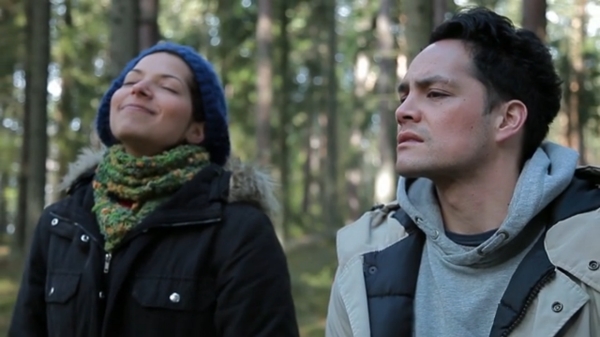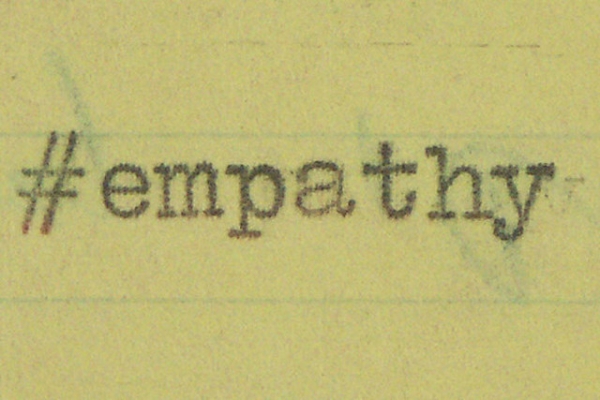

![A Cultural Goal In The 21st Century: Building A Global Village [TED Talk]](http://www.mutualresponsibility.org/wp-content/uploads/2012/08/sheikha-al-mayassa-quote.jpg)
A Cultural Goal In The 21st Century: Building A Global Village [TED Talk]
We don’t want to be all the same, but we want to respect each other and understand each other.” Sheikha Al Mayassa is chairperson of the Qatar Museums Authority. In this TED talk she focuses on her small Middle Eastern state of Qatar—and the new emphasis the nation is placing on redesigning their culture to resemble a global village. We are changing our culture from within but at the same time we are reconnecting with our traditions… It’s important for us to grow organically. And we continuously make the conscious decision to reach that balance.” Global & Local And this is what the leaders of this region are trying to do. We’re trying to be part of this global village, but at the same time we’re revising ourselves through our cultural institutions and cultural development.” Towards A Global Village Now over and over again, people have said, ‘Let’s build bridges,’ and frankly, I want to do more than that. I would like to break the walls of ignorance between East and West… Culture’s a very important tool to bring people together. We should not underestimate it. This is a very interesting journey. I welcome you on board for us to engage and discuss new ideas of how to bring people together through cultural initiatives and discussions. Familiarity destroys and trumps fear. Try...
Be Careful With What You Think, Do & Say – Biologist Rupert Sheldrake Explains Social Influence & Interdependence Through Morphic Resonance
What you do, what you say and what you think can influence other people by morphic resonance. So we’re more responsible for our actions, words and thoughts on this principle than we would otherwise be. There is no immoral filter in morphic resonance, which means that we have to be more careful about what we are thinking if we are concerned about the affect we have on others.” British biologist Rupert Sheldrake, author of over 80 scientific papers and books, the most recent being The Science Delusion: Freeing the Spirit of Enquiry What Is Morphic Resonance? Morphic resonance is a memory principle in nature. Anything similar in a self-organizing system will be influenced by anything that has happened in the past, and anything in the future that happens in a similar system will be influenced by what happens now. So it is a memory in nature based on similarity, and it applies to atoms, molecules, crystals, living organisms, animals, plants, brains, societies, and indeed, planets and galaxies. So it is a principle of memory and habit in nature.” Interconnectedness Of People & Nature Explained Through Morphic Resonance An important aspect of morphic resonance is that we’re interconnected with other members of social groups. Social groups also have morphic fields, for example a flock of birds, or a school of fish, or an ant colony. The individuals within the larger social groups and the larger social groups themselves have their own morphic fields, their own organizing patterns. The same is true of humans. People form all sorts of social groups within modern society, such as a football team, for example. Each player in...
Big Love. Big Hearts. A Plan For The Creation Of One Global Extended Family
With the current globalization of our problems, we need to extend our circle of empathy and view humanity as a worldwide extended human family. As long as we refrain from facing that challenge, divisiveness and unsolvable conflicts will persist.” Professor Rodrigue Tremblay is an author and Emeritus professor of economics at Université de Montréal. In addition to his writings on economics, he has also written extensively on the subject of ethics; and most recently, on the urgent need for a new level of universal ethics, morality, and empathy to be developed and maintained in the world. The Super Golden Rule [In a more universal civilization], first and foremost, the scope of human empathy would be more universal and more comprehensive, and would not merely apply to some chosen people, to members of a particular religion or to persons belonging to a particular civilization. In practice, this would require that we establish a higher threshold of human morality, beyond the traditional norm of the Golden Rule (‘Treat others as you would have others treat you.’) It would require that we adopt what I call a Super Golden Rule of humanist morality that incorporates the humanist rule of empathy: ‘Not only do to others as you would have them do to you, but also, do to others what you would wish to be done to you, if you were in their place.’ — Of course, the corollary also follows: ‘Don’t do to others what you would not like to be done to you, if you were in their place.’” Three Interrelated Moral Imperatives Three interrelated moral imperatives that have always been sound moral values, but which...![Forced Positive Thinking Doesn’t Solve Problems [RSA Video]](http://www.mutualresponsibility.org/wp-content/uploads/2012/09/smile-or-die.jpg)
